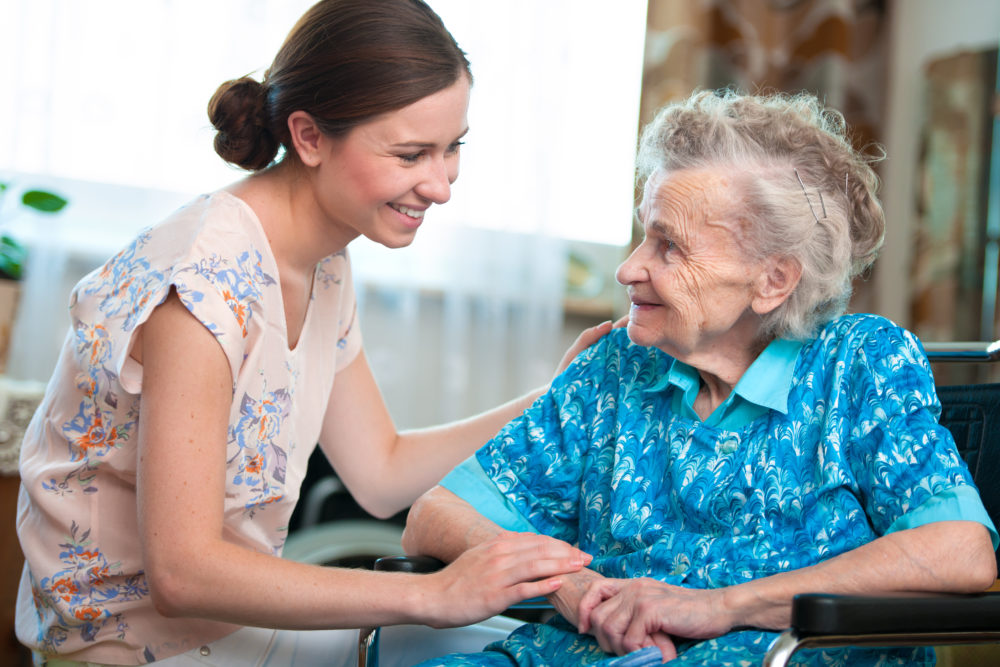5 Ways A Caregiver Can Help Seniors With Poor Eyesight
One thing that many seniors have to deal with is the loss of their vision. When a senior adult beings losing their eyesight, this can be very difficult for them. Some of the independence that they once had is now taken away from them, and they have to go through an adjustment period. Thankfully, there are certain things that you can do to help seniors with poor eyesight. Here are 5 great tips.

1. They Always Face The Individual When Speaking To Them
One way a home caregiver can help an elderly individual with poor eyesight is to make sure they always face them when they are speaking to each other. This gives them the best chance of seeing their caregiver, at least to some degree, and will likely make them feel much more comfortable when they are talking to them. If their caregiver were to stand to either side of them, they may not be able to see them at all and would instead feel as if they were talking to themselves.
2. Caregivers Follow The Pace Of The Senior Individual When Helping Them With Mobility
Caregivers make sure that they follow the pace of the elderly individual when they are helping them walk so that they don’t accidentally push or pull them. The elderly individual will walk at a pace at which they are comfortable with their limited eyesight, so they should be in control of this. If the caregiver were to begin walking too quickly, they may unintentionally pull them. This could cause them to injure themselves because they may trip and fall or run into something that they didn’t see. Caregivers of course want to avoid this and are very careful with the elderly individual.
3. They Explain The Loud Or Unusual Noises Around Them
When there is a loud or unusual noise that is made, a caregiver knows how helpful it can be to tell the senior individual where the noise came from. Otherwise, they may be fearful that they heard the sound and can’t identify where it came from or perhaps even what it was. For example, if there is a loud banging sound, a caregiver would let them know that there is construction going on in the building next door, thus putting their mind at ease.
4. The Caregiver Will Describe What Is Happening Around The Individual
Since the person with poor eyesight has trouble seeing what is going on around them, the caregiver will essentially be their eyes and describe what is happening all around them. This is very important, especially when the caregiver and senior are in public because there is so much going on. The caregiver can explain to them what the road looks like in front of them, when they are approaching a stop light, if they need to step up or down for a stair or curb, etc.
5. They Hold Their Arm Still When Guiding Them
When a caregiver is guiding an senior individual, they know just how important it is to keep their arm still. This can help the individual to feel as if they are completely stable. The caregiver will avoid moving their arm as much as possible, because this can cause the senior individual to no longer feel stable and this could potentially cause them to lose their center of balance and fall. If the caregiver must move their arm, they will be sure to indicate that they will do so beforehand.
Being able to help a senior individual with poor eyesight is crucial. By facing them when speaking to them, following their pace when helping them with mobility, explaining loud or unusual noises to them, describing what is going on around them, and holding their arm still when guiding them, you can make them feel safe and secure.
To learn more, visit us at Mayberry Gardens.
